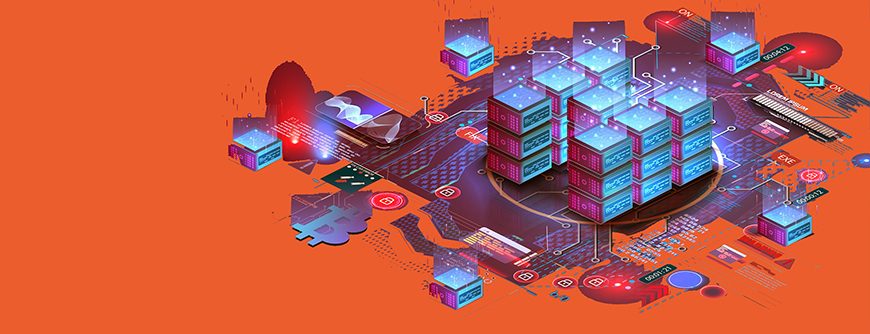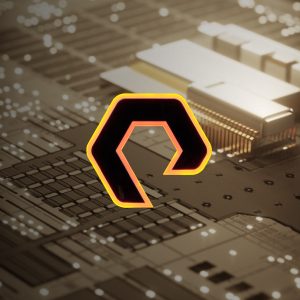High-performance computing (HPC) clusters solve complex problems requiring significant computational power. They consist of multiple interconnected computers that perform calculations and simulations in parallel, allowing for faster and more efficient processing of large amounts of data. This article will explore what HPC clusters are, how they work, and how they’re used.
What Is an HPC Cluster?
An HPC cluster is a collection of interconnected computers that perform highly complex computational tasks. These clusters work together to provide the processing power needed to analyse and process large data sets, simulate complex systems, and solve complex scientific and engineering problems.
An HPC cluster typically consists of multiple nodes, each with its own processor, memory, and storage. These nodes connect through a high-speed network, such as InfiniBand or 10 Gigabit Ethernet.
How HPC Clusters Work
HPC clusters work by dividing a large computational problem into smaller, more manageable parts distributed across the cluster's nodes. Each node performs its assigned task and combines the results to produce the final output. This process is known as parallel computing and is essential to the efficient operation of HPC clusters.
HPC clusters use a "job scheduler" to ensure the computational workloads are evenly distributed across the cluster. The job scheduler manages the allocation of computational resources, ensuring each node operates at maximum capacity and preventing processing bottlenecks.
Applications of HPC Clusters
HPC clusters have a wide range of applications, including:
- Scientific research: HPC clusters are commonly used in scientific research to simulate complex systems, such as the behavior of materials, weather patterns, and fluid dynamics.
- Engineering: HPC clusters are used in engineering to simulate the behavior of structures and systems, such as aircraft or automobile components.
- Financial analysis: HPC clusters can be used in finance to analyse large amounts of data, such as stock market trends, to identify patterns and make predictions.
- Medical research: HPC clusters are used in medical research to analyse large amounts of data, such as genomic sequencing, to identify potential treatments for diseases.
- Machine learning: HPC clusters are increasingly being used in machine learning applications to train deep neural networks, which require a significant amount of computational power.
There will no doubt be more use cases for HPC clusters coming in the near future.
HPC vs. HTC
HPC and high-throughput computing (HTC) are often used interchangeably but have distinct differences. While both involve high-powered computing, they serve different purposes and process different types of workloads.
HTC typically involves large numbers of relatively small computational tasks. HPC, on the other hand, works best for running a small number of large, complex simulations or calculations.
Both HPC and HTC require large amounts of computing power, but HPC requires this power for much shorter periods: hours or days compared to months or years for HTC.
What Is HTC?
HTC systems are typically composed of computer clusters running multiple independent tasks concurrently over a long period of time. This allows HTC systems to process a large number of jobs in parallel, making them well-suited to applications that involve processing large amounts of data or running many simulations or calculations in parallel.
One of the key benefits of HTC is its scalability. Because HTC systems are composed of many smaller computers, adding additional nodes to the system is relatively easy.
How Does HTC Work?
HTC works by breaking down large computational tasks into many smaller, independent tasks that can be run in parallel on multiple computers. This approach is sometimes called "embarrassingly parallel" computing because the tasks are so independent of one another that there’s no need for communication or coordination between the computers running the tasks.
To take advantage of HTC, applications need to be designed with parallelism in mind. This typically involves breaking down the computation into smaller tasks and designing a workflow that can be run in parallel across multiple compute nodes. Once the workflow is defined, it can be submitted to the HTC system, which will automatically distribute the tasks across the available compute nodes.
Differences and Similarities Between HTC and HPC
The main difference between HTC and HPC is the types of applications they’re designed to handle. HTC works best for handling many small, independent computational tasks in parallel, while HPC is optimised for handling large, complex simulations or calculations.
Another key difference between HTC and HPC is the hardware they use. HTC systems typically use clusters of smaller, less powerful computers, while HPC systems use a smaller number of very powerful computers, often with specialized hardware such as GPUs or FPGAs.
Both HTC and HPC rely on parallelism and distributed computing to achieve high performance, and both require a high degree of expertise to configure and manage effectively.
HPC vs. Cloud Computing
Cloud computing is another well-known and commonly discussed computing architecture. It has some things in common with HPC but also some key differences.
What Is Cloud Computing and How Does It Work?
Cloud computing uses a network of internet-hosted remote servers to store, manage, and process data. It’s a form of distributed computing that provides resources and services over the internet. Cloud computing lets users access their data and applications from anywhere with an internet connection and without the need for dedicated hardware or software.
Cloud computing has three main service models: infrastructure as a service (IaaS), platform as a service (PaaS), and software as a service (SaaS). IaaS provides access to virtualised computing resources, including servers, storage, and networking. PaaS lets users develop, deploy, and manage applications, while SaaS provides a software application hosted and managed by third-party providers.
Similarities Between Cloud Computing and HPC
Cloud computing and HPC share the following characteristics:
Distributed: Both HPC and cloud computing use distributed computing architectures involving the use of multiple computers to work together to solve complex problems.
Virtualisation: Both HPC and cloud computing use virtualisation techniques to enable the sharing of resources and increase efficiency.
High performance: Both HPC and cloud computing are designed to provide high-performance computing capabilities.
HPC and Cloud Computing Focus on Different Things
While they have similarities, HPC and cloud computing focus on different goals.
HPC focuses mainly on achieving the highest levels of performance possible, while cloud computing is more concerned with providing scalable and cost-effective computing resources.
Cloud computing is also highly flexible, allowing users to customize their computing environments to meet their specific needs. This makes it ideal for organisations that have diverse computing requirements.
Cloud computing is also generally more cost-effective than HPC because it allows organisations to only pay for the computing resources that they need. HPC, on the other hand, requires significant up-front investment in hardware and infrastructure.
Ultimately, the choice between HPC and cloud computing will depend on the specific computing requirements of your organisation.
What Makes a Supercomputer?
Supercomputers are a vital component of scientific and industrial research. They support tasks that require vast amounts of processing power and storage capacity, such as weather forecasting, protein folding, and quantum mechanics.
But what exactly makes a supercomputer?
A supercomputer is a high-performance computing system capable of performing complex calculations at incredibly high speeds. Supercomputers are designed to solve problems that require massive amounts of processing power and memory, such as simulations, data analysis, and modeling. Supercomputers are typically built using specialized hardware and software optimised for high-speed processing and parallel computing.
4 Types of Supercomputer: Vector, Parallel, Distributed, and Grid
There are four main types of supercomputers: vector, parallel, distributed, and grid. Vector supercomputers use specialized processors optimised for performing a single type of calculation repeatedly. Parallel supercomputers, on the other hand, use many processors working together to solve a single problem. Distributed supercomputers are made up of multiple computers that work together to solve a problem, with each computer handling a different part of the calculation. Grid supercomputers are similar to distributed supercomputers but are spread out over a wider geographical area and can be accessed remotely by users.
HPC Clusters Aren't Exactly the Same as Distributed Supercomputers
HPC clusters are often referred to as supercomputers, and most people see them as the same thing. However, HPC clusters aren't necessarily designed for the same level of performance or complex calculations as a true supercomputer.
Can HPC Clusters Compete with Supercomputers?
While HPC clusters are not exactly the same as supercomputers, they’re still very powerful computing systems. Some HPC clusters can rival the performance of smaller supercomputers. However, when it comes to the most complex calculations, a true supercomputer is still the best option.
When to Use HPC Clusters
HPC clusters are becoming increasingly popular as organisations look for ways to process large amounts of data quickly and efficiently.
They can be used for a variety of purposes, including simulations, modeling, research, and analysis, as well as for handling big data in finance and healthcare.
Let's explore when it makes sense to use HPC clusters and the benefits they can offer.
Simulations, modeling, research, and analysis
Simulations and modeling require a large amount of computing power to generate accurate results. HPC clusters can accelerate these processes by distributing the workload across multiple machines. This allows researchers to simulate more complex scenarios and obtain results faster.
HPC clusters are also useful for research and analysis in fields such as engineering, physics, chemistry, and climate science. These fields require a high level of computational power to process and analyse data, and HPC clusters can provide this.
Big data
Organisations collect vast amounts of data, the processing of which can be a major challenge. HPC clusters can process big data quickly and efficiently, enabling organisations to gain insights from their data in real time. This is particularly useful in industries such as finance and healthcare, where large data sets need to be analysed quickly to make informed decisions.
Finance
The finance industry generates a large amount of data every day, and this data needs to be analysed quickly and accurately. HPC clusters can be used to process this data in real time, providing traders with up-to-date information that can be used to make informed decisions. HPC clusters are also useful for financial modeling, which requires a high level of computational power.
Healthcare
The healthcare industry is another area where HPC clusters can be used. Medical research generates a large amount of data, and this data needs to be analysed quickly and accurately. HPC clusters can be used to process this data, enabling researchers to identify patterns and make discoveries that can help improve patient outcomes.
Fast results on complex calculations
HPC clusters can process complex calculations quickly. This makes them useful for tasks such as weather forecasting, where accurate results are needed quickly. HPC clusters are also useful for tasks such as image processing, where large amounts of data need to be analysed quickly.
Collaboration
HPC clusters are designed to be flexible and scalable. This makes them ideal for collaborative projects where multiple researchers need access to the same data and computational resources. HPC clusters can be easily configured to meet the needs of different projects, and they can be scaled up or down as required. This flexibility allows organisations to use HPC clusters for a wide range of tasks, making them a valuable investment.
Conclusion
HPC clusters are a powerful computing infrastructure that companies can use to solve complex problems requiring serious computational power. An HPC cluster consists of multiple interconnected computers that work together to perform calculations and simulations in parallel. They have a wide range of applications, including scientific research, engineering, financial analysis, medical research, and machine learning. With the growth of big data and the increasing complexity of scientific and engineering problems, the demand for HPC clusters is only set to increase in the coming years.





